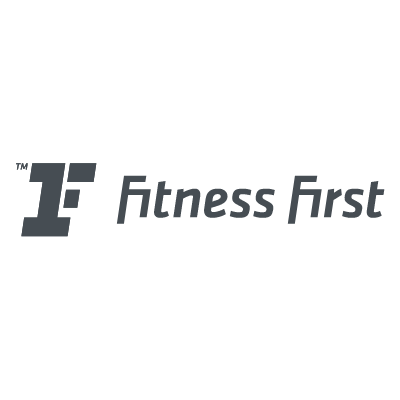Do Daily Weigh-ins Help Your Clients Lose Weight?

Should you get your clients to weigh themselves every day?
If they're on a weight loss journey, it seems like a no-brainer.
But while scale weight is one (but not the only) important metric of progress for anyone trying to lose a few pounds, it's not always so simple.
It's more than just a number... it's about emotions, mindset, and motivation.
Understanding how to approach topics like weigh-ins with care and nuance is something that’s often covered in a high-quality personal trainer course, where behaviour change and client psychology are key elements.
Some clients may thrive off an approach where you record weight changes daily for accountability and measurable progress. For others, it can be a source of anxiety, stress, or shame.
If you're keen to steer your clients towards more informed and sustainable health decisions, you need to grasp the intricacies of daily weigh-ins.
What does the research say about the benefits and drawbacks of regular body weight measurements? How can they be implemented without causing undue stress or obsession?
And what are the best practices for balancing weigh-ins with other holistic measures of health – particularly when working with clients ranging from fitness newbies to those more advanced?
It's all detailed in this comprehensive exploration of daily weigh-ins...
The Motivational Aspect
For many clients, stepping on the scale is akin to a moment of truth. It's tangible proof of their hard work, sweat, and sometimes tears. This daily ritual can foster a sense of accountability and commitment. Imagine a client who, after a week of mindful eating and dedicated workouts, sees a drop in weight. That’s a powerful motivator! It's akin to hitting a small victory lap in their fitness journey.
As a personal trainer, harnessing this motivational tool can be a game-changer. It’s about showing clients that their efforts yield results. This isn’t just about losing pounds; it's about gaining confidence, and nothing boosts a client’s morale like seeing positive changes.
But it's not just about celebrating the wins. It's also about setting realistic expectations. Some days the scales may not tip in the desired direction, and that's okay. This is where your role becomes pivotal. You guide your clients through these fluctuations, helping them understand that weight is not just a number, but a fluctuating metric influenced by a myriad of factors.
Potential Stress and Anxiety
Now, let’s address the elephant in the room - the stress and anxiety weigh-ins can induce. For some clients, the scale can transform from a tool of measurement to a source of dread. The daily weigh-in becomes a high-stakes event, where the number displayed can dictate their mood and self-esteem for the day. It’s vital to recognise when weigh-ins start becoming a detrimental obsession rather than a helpful tool.
As trainers, our goal is to nurture a positive relationship with the scale and with one's body. It's about striking that delicate balance where weigh-ins are informative, not punitive. This involves educating clients about the many factors that can affect their weight - from water retention to muscle gain - and helping them to see beyond the number.
Your sensitivity and support in this matter can make all the difference. It’s about creating a supportive environment where clients feel safe to discuss their anxieties. Sometimes, it might mean suggesting a break from the scale, focusing instead on other indicators of health and fitness, like how they feel in their clothes or their overall energy levels.
Incorporating these psychological insights into your training approach not only enhances your client's journey but also elevates your reputation as a trainer. It's a testament to your holistic understanding of fitness, far beyond the confines of physical exercise and diet. This depth of understanding and empathy can set you apart in the industry, attracting more clients who seek a trainer that values their mental wellbeing as much as their physical health. Remember, a successful personal trainer is not just measured by the results they help their clients achieve but also by the positive, empowering journey they facilitate.
Weighing In: The Good, The Bad, and The Ugly
As personal trainers, we navigate the nuanced waters of fitness and health, and understanding the multifaceted role of regular weigh-ins is crucial. It's not just about tracking progress; it's about understanding the psychological and physical impact on our clients.
Benefits of Regular Weigh-Ins
Let's start on a positive note. Regular weigh-ins can be a potent tool in the arsenal of a personal trainer. They provide concrete data that can be motivating for many clients. Seeing numbers change, especially in the direction of their goals, can be incredibly rewarding. It's a quantifiable measure of their effort and discipline, and for some, this is the drive they need to stick to their fitness regime.
Moreover, these regular check-ins offer an opportunity for trainers to recalibrate and adjust workout plans or dietary advice based on tangible results. It's a feedback loop that allows for a tailored approach to each individual's journey. In this way, weigh-ins can be a catalyst for a more personalised and effective training programme.
But there's more. Weigh-ins can also foster self-awareness in clients. They become more in tune with how their lifestyle choices - from diet to exercise to sleep - affect their body. This awareness is a cornerstone of a sustainable fitness journey.
Drawbacks and Risks
However, there's a flip side. Regular weigh-ins, while beneficial for some, can be a slippery slope for others. The primary risk is the development of an unhealthy obsession with the number on the scale. This obsession can lead to a range of negative outcomes, from disordered eating habits to constant stress and anxiety about weight fluctuations.
Another risk is the potential for a skewed perception of progress. Muscle is denser than fat, so a client who is gaining muscle and losing fat might not see a dramatic change on the scale. This can be discouraging if they're not aware of the body composition changes that are occurring.
Moreover, daily weigh-ins can sometimes overshadow other significant markers of health and fitness improvements, such as increased strength, better endurance, improved mood, and higher energy levels.
Who Should Avoid Daily Weigh-Ins?
This brings us to an essential question: Who should steer clear of daily weigh-ins? The answer lies in the individual's relationship with their body and the scale. Clients who have a history of eating disorders, body dysmorphia, or obsessive tendencies related to their weight should avoid daily weigh-ins. For these individuals, focusing on other measures of health and fitness can be more beneficial and less triggering.
Additionally, clients who become visibly stressed or discouraged by daily fluctuations in weight should reconsider the frequency of their weigh-ins. In these cases, it might be more productive to weigh in less frequently and place a greater emphasis on non-scale victories and overall wellbeing.
In conclusion, as personal trainers, our role is to guide our clients through their fitness journey with empathy and understanding. We must assess the individual needs and mental well-being of each client to determine if and how regular weigh-ins can be a part of their fitness regimen. Remember, our ultimate goal is not just weight loss or muscle gain; it's fostering a sustainable, healthy lifestyle that our clients can maintain and enjoy. This holistic approach not only enhances our clients' journeys but also solidifies our standing as trainers who value the overall health and happiness of those we guide.
What Does the Research Say?
In the dynamic field of fitness and weight management, it's essential for us, as personal trainers, to be grounded in scientific evidence. Let's delve into what current research reveals about the practice of daily weigh-ins.
Studies Supporting Daily Weigh-Ins
Research has shown that regular weigh-ins can be beneficial. A study published in the Journal of Behavioural Nutrition and Physical Activity found that daily self-weighing was an effective intervention for weight loss and prevention of weight gain among adults. This study highlighted that frequent weigh-ins can enhance self-regulation and provide immediate feedback, allowing individuals to adjust their behaviours accordingly1.
Another study in Preventative Medicine discovered that individuals who weighed themselves more frequently lost significantly more weight compared to those who weighed less frequently. The daily routine of stepping on the scale was shown to reinforce healthy habits and maintain awareness of weight goals2.
Furthermore, research in the Annals of Behavioural Medicine suggested that daily self-weighing can lead to better adoption of weight control behaviours. This frequent monitoring was linked to increased exercise, better dietary choices, and more consistent eating patterns3.
Counterarguments and Concerns
However, it’s important to balance these findings with counterarguments. A literature review in Current Obesity Reports warned against the potential psychological distress associated with daily weigh-ins. It highlighted a number of studies that found for some individuals, particularly women, this practice could lead to negative body image, anxiety, and disordered eating patterns4.
Additionally, scale can sometimes be misleading, as it doesn’t differentiate between fat loss and muscle gain. This can lead to discouragement and frustration, especially for those who are working out regularly.
The bottom line is this: while daily weigh-ins can be a useful tool for weight management, it’s important to consider individual needs and preferences. Our approach should be nuanced, taking into consideration the individual preferences, mental health, and overall goals of our clients. We must remain adaptable, using research as a guide but not a one-size-fits-all rule. By doing so, we position ourselves not just as trainers, but as informed allies in our clients' pursuit of health and wellness.
Practical Tips for Personal Trainers
Navigating the world of weigh-ins with your clients requires a thoughtful, personalised approach. Here are some practical tips to ensure you're using this tool effectively and sensitively.
How to Implement Weigh-Ins Effectively
- Set Clear Expectations: Begin by explaining to your clients what the scale can and cannot tell them. Emphasise that it's just one of many tools to measure progress.
- Choose the Right Frequency: Not every client needs to weigh in daily. Assess each client's emotional response to weigh-ins and adjust the frequency accordingly. For some, weekly or bi-weekly weigh-ins might be more suitable.
- Contextualise the Numbers: Help your clients understand that weight can fluctuate due to various factors like water retention, muscle gain, and hormonal changes. It's crucial to look at weight trends over time, rather than focusing on day-to-day changes.
- Integrate Other Measures of Success: Encourage clients to track other indicators of progress such as measurements, fitness levels, strength gains, and how they feel in their clothes.
- Be a Source of Positive Reinforcement: Celebrate the non-scale victories with your clients. Acknowledge their hard work, regardless of what the scale says.
Alternatives to Daily Weigh-Ins
- Progress Photos: Encourage clients to take regular progress photos. This can be a powerful way to visually track changes in their body that the scale might not show.
- Fitness and Strength Tests: Regularly assess improvements in fitness and strength. This could include timed runs, the number of reps at a certain weight, or endurance tests.
- Wellness Journals: Suggest keeping a wellness journal to track other aspects of health, like sleep quality, energy levels, mood, and dietary habits.
- Body Measurements: Taking regular body measurements can be a more reliable way to track fat loss and muscle gain.
- Focus on Behavioural Goals: Set goals around healthy habits like drinking a certain amount of water, eating vegetables with every meal, or getting a set amount of sleep.
Communicating with Clients About Weigh-Ins
Open and Empathetic Dialogue: Create a safe space for clients to express their feelings about weigh-ins. Listen to their concerns and adjust your approach accordingly.
Educate on Healthy Mindsets: Encourage a healthy relationship with the scale. It's a tool, not a judgement.
Customise Your Approach: Tailor your communication and strategy to each client's individual needs, goals, and responses to weigh-ins.
Be the Voice of Reason: Help clients understand and interpret their weigh-in results, providing reassurance and perspective when needed.
Encourage Self-Compassion: Remind clients that their self-worth is not tied to a number on the scale. Promote a holistic view of health and fitness.
Conclusion
Weigh-ins, when used thoughtfully, can be a powerful motivator and an effective measure of progress. They offer tangible evidence of a client's hard work and dedication, reinforcing positive behaviours. However, they can also present challenges, potentially leading to stress, anxiety, and an unhealthy focus on numbers.
The crux of successful personal training lies in personalisation. Each client is a unique individual with distinct needs, goals, and responses to weigh-ins. As trainers, our approach must be as varied and nuanced as the clients we serve. It's about striking a balance between providing objective data through weigh-ins and nurturing a positive, healthy mindset towards fitness and body image.
Acknowledging and respecting each client's mental health in relation to weigh-ins is paramount.
Our guidance can shape how clients view themselves and their journey towards health and fitness, so apply this knowledge with care and sensitivity.
And remember, weigh-ins are just one of many tools in our repertoire to help clients hit their goals.
References
- Van Wormer, J.J. et al (2009) “The Impact of Regular Self-weighing on Weight Management: A Systematic Literature Review”, International Journal of Behavioural Nutrition and Physical Activity. https://ijbnpa.biomedcentral.com/articles/10.1186/1479-5868-5-54
- Jeffery R.W. et al (1984) “Correlates of weight loss and its maintenance over two years of follow-up among middle-aged men.” Preventative Medicine.13:155–168.
- D.M. Steinberg et al (2015) “Weighing every day matters: daily weighing improves weight loss and adoption of weight control behaviors’, Journal of the Academy of Nutrition and Dietetics, April 115(4):511-8.
- Pacanowski C.R. et al (2015) “Self-Weighing: Helpful or Harmful for Psychological Well-Being? A Review of the Literature,” Current Obesity Report, March; 4 (1): 65-72.


























